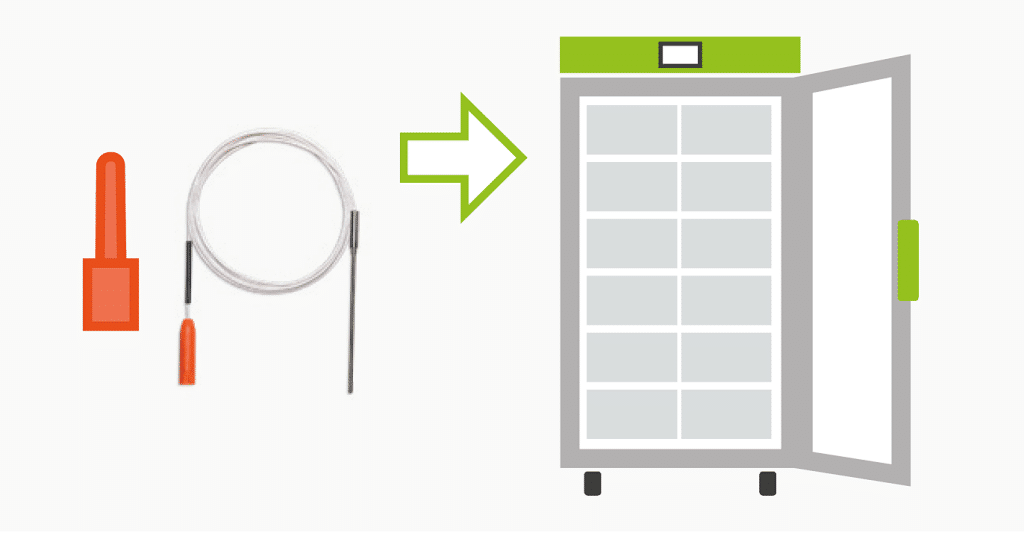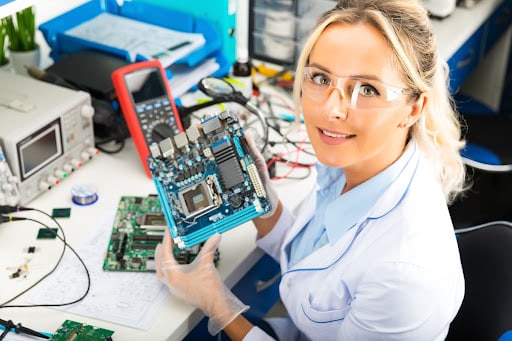Refrigerators and freezers are important components of many laboratories and medical environments. Storing biological samples is a meticulous process, as experts work to ensure they are preserved for various purposes.
The use of laboratory refrigerators and freezers makes the storage and preservation process for these materials much simpler and more effective. An ultra-low temperature (ULT) freezer is unique for its ability to reach and maintain extremely low temperatures, which are crucial for preserving biological materials over long periods.
Determining the Ideal Temperature Range for Samples
Biological samples require storage at various temperatures to remain suitable for use and observation while avoiding deterioration. Therefore, refrigerators and freezers are necessary for the preservation process of different biological samples depending on their ideal temperature range.
Biological samples that are more likely to deteriorate rapidly and experience cell decay require the colder temperatures of a freezer. However, some samples can be preserved at the temperature of a laboratory refrigerator.
When determining the ideal temperature for medications, it is best to avoid speculation and directly consult the manufacturer. For other biological samples, consider standard operating procedures for the type of sample, preservation methods used and whether the sample will be stored short or long term.
Regardless of the ideal temperature range for a sample, you should avoid repeated freezing and thawing of the sample as it will harm the integrity.
Biospecimen Types Stored in Ultra-Low Temperatures
The ability to store samples at ultra-low temperatures is crucial for a variety of biospecimen types. These temperatures effectively preserve biological samples as they slow down biological activity and, therefore, prevent the deterioration of samples and medications. Some of the biospecimens that require storage in ultra-low temperatures include:

Vaccines
Vaccine storage usually stores at refrigerated temperatures, but mRNA vaccines are best stored at an extremely low temperature, usually between –90℃ and -60℃. They can be safely stored in clinics using portable freezers or with methods like dry ice. Long-term vaccine storage should occur in an ultra-low temperature freezer at a consistent, low temperature.
Tissue Samples
Tissue samples can remain safely preserved around –20℃ if they are suspended in preservative solutions. This temperature is best for maintaining the samples for short-term storage. DNA and RNA can often still be obtained from the samples when stored at this temperature. However, experts usually recommend colder temperatures for long-term storage of tissue samples not suspended in a stabilizing solution.
Biochemical Assays and Reagents
Biochemical assays and reagents, such as enzymes, maintain their viability at extremely low temperatures around –80℃. These temperatures also help prevent the degradation of proteins, nucleic acids and other biological molecules.
Ultimately ultra-low temperature freezers are useful for various samples and are a key component of a laboratory or medical facility for preservation purposes.
Temperature Monitoring Practices of ULT Freezers

Laboratory freezers are an asset not only because of their ability to reach extremely low temperatures but also because of their ability to maintain temperature uniformity. Temperature stability is vital to the storage process so that samples do not experience a fluctuation in temperature, which will make them more likely to degrade.
ULT Freezers make the storage process easier by allowing you to set the desired temperature and holding it over time with proper maintenance.
Laboratory refrigerators and freezers are designed with a temperature display and control panel to ensure that samples remain at their recommended temperature. Other options include remote electronic monitoring with alarm systems to alert you if the temperature rises above the designated range. However, it is still a good idea to have a manual method for testing the temperature to ensure that you do not lose samples in the event of a freezer malfunction.
Frequently Asked Questions
Regarding the use of laboratory freezers, people also ask:
What is the use of a freezer in the laboratory?
A freezer is a crucial component of a laboratory as it is often necessary for the long-term storage of biological materials, like vaccines, bacteria samples, tissue samples and certain chemicals.
What are freezers used for?
Freezers can be used for anything from the transportation of samples to long-term storage. You can utilize chest freezers, ultra-low temperature freezers or cryogenic freezers.
How are cold temperatures used in biological specimen preservation?
Low temperatures slow biological processes, so they are necessary for storing biological specimens to maintain their viability and do not degrade over time.
How do you store biological samples?
Biological samples should be stored at a stable, low temperature in a temperature-controlled, explosion-proof refrigerator or freezer.
For more information about ULT freezers and proper storage of biological specimens, contact Stirling Ultracold. Our inventory provides multiple cold storage options to preserve your biological samples; contact us today.








